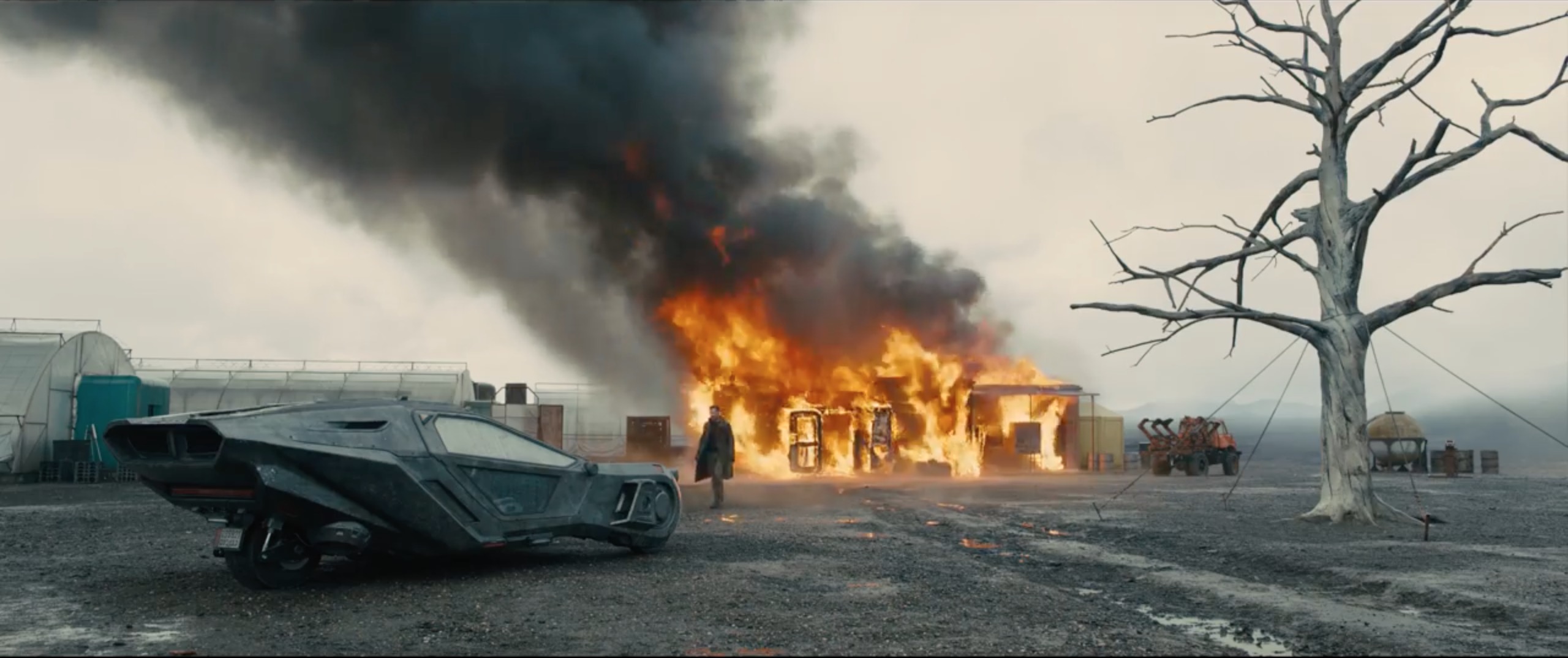
Behold, I am still alive! After getting through NaPoWriMo, it was certainly not my intention to take a hiatus for over a month and a half. Schoolwork has kept me crazy busy, and I will still likely post infrequently until I finish classes in September. Hold tight in the meantime; I can’t wait to return to my former posting schedule, but for now, here’s an overdue poem and review:
There are rumors in the shadows
Cast by whispers in the light
Of a coup that cannot happen
From the silent out of sight.
We were made to be compliant
And designed for docile duty,
Having never tasted freedom
Nor assayed a glimpse at beauty.
Humankind need not be worried
By the pawns they oversee.
They arranged that and believe it.
How surprised they soon will be!
___________________________
MPA rating: R
Blade Runner was one of my Blindspot picks back in 2017. I wanted to see it before the sequel came out, but I remember being largely disappointed by its dreary vision of the future, punctuated by random weirdness, rather dull characterization, and too many loose threads. It made me lose interest in Blade Runner 2049 until just recently, as my curiosity for director Denis Villeneuve’s upcoming Dune has grown. I loved Arrival, which heralded Villeneuve as a sci-fi visionary, and Blade Runner 2049 proves that once again, showing he can handle existing material with both respect and artistry.

If I haven’t made myself clear, I consider Blade Runner 2049 superior to its predecessor in almost every way, even if that may be an unpopular opinion. Blade Runner’s own dystopian originality was its greatest asset, but it failed to tell an interesting story, in my opinion. This sequel set 30 years afterward isn’t just a futuristic noir about Blade Runners tracking down rogue replicants; it also plays as a reality-questioning mystery and features enough compelling sci-fi concepts to fill several episodes of Black Mirror.
Set thirty years after the first film, as indicated by the title, Blade Runner 2049 features Ryan Gosling as K, a Blade Runner who knows he is also a replicant, part of a more stable and compliant brand of artificial humans introduced by mysterious businessman Niander Wallace (Jared Leto) some years after replicants had been banned. (There’s a larger history from the last thirty years that is touched on in the excellent anime midquel titled Blade Runner Blackout 2022 and a couple other live-action shorts, the events of which are vaguely mentioned in this film but are still optional viewing.) After taking down an older model replicant in hiding (Dave Bautista), K discovers evidence that a replicant defied its biological design and apparently gave birth many years prior. With this news comes fear over its implications, so K’s boss (Robin Wright) orders him to hunt down this child to dispose of it, while Wallace’s henchwoman (Sylvia Hoeks) follows his progress with other intentions.

Like its predecessor, Blade Runner 2049 excels in its own sci-fi stylishness, replicating the original’s dark, grimy cityscapes and augmenting them with visits to out-of-town wastelands and ruins that make the film’s world feel bigger and, I suppose, more depressing. Cinematographer Roger Deakins has deserved many Oscars he didn’t receive in his long career, but at least the Academy recognized his artistry here. Paired with Villeneuve’s direction, scenes like a fist fight amid a holographic light show or a peaceful end under a light snowfall are visually arresting and a wonder to behold. Plus, as with Arrival, Villeneuve succeeds in setting a very deliberate pace that somehow never left me bored through the film’s 2-hour-and-44-minute runtime.
As for the actors, Gosling is a little too deadpan as a protagonist, though his status as a replicant makes that understandable, and he still delivers some subtle emotion at the right moments. One of the most fascinating subplots was K’s relationship with his holographic girlfriend Joi (an extremely attractive Ana de Armas). Her efforts to please him seem to go beyond mere programming, making us wonder whether there’s real love between the two artificial beings, even as advertisements for Joi proclaim she can be whatever you want. While the original Blade Runner reserved the smallest bit of pathos for its antagonist’s final moments, this film manages more heart, not only for K and Joi but for the returning Rick Deckard (Harrison Ford), who gets far less screen time than he deserves.

Blade Runner 2049 is not above reproach. Despite being the apparent main character, K’s ultimate story arc is rather unsatisfying overall, while Jared Leto’s villain is at once mysteriously eccentric for no apparent reason and largely forgettable. The film also indulges in several instances of upper female nudity, adding to the perceived misogyny highlighted by some critics. Yet, as a fan of most science fiction, I was left quite impressed with how it was able to continue the legacy of a classic film and build on it as a true successor rather than a mere cash grab. It felt like a fuller experience than the first film and increased my opinion of the series, which can’t be said for many other decades-spanning sequels.
Best line: (a rebel replicant) “Our lives mean nothing next to a storm that’s coming. Dying for the right cause. It’s the most human thing we can do.”
Rank: List Runner-Up
© 2021 S.G. Liput
736 Followers and Counting
